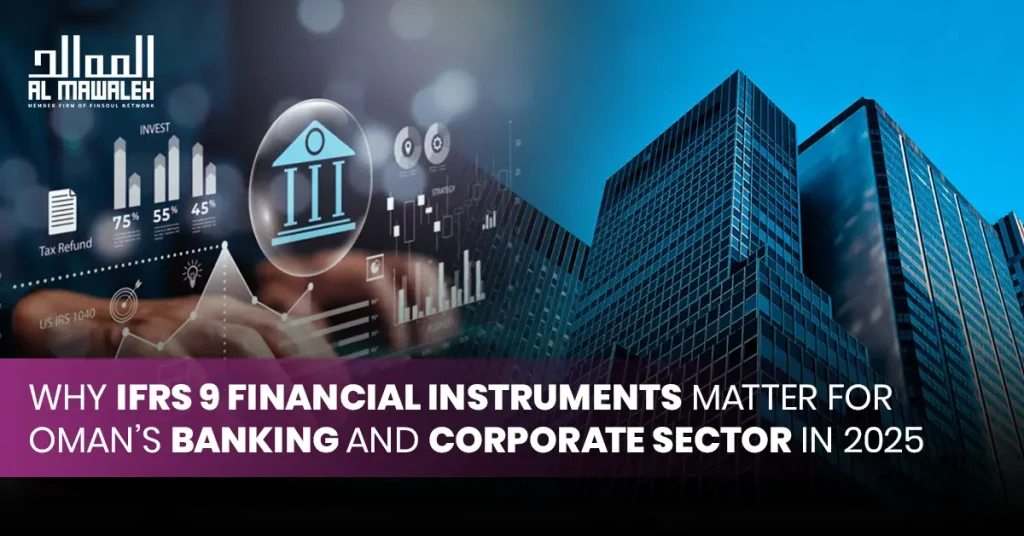- Welcome to Al-Mawaleh
- Majan building , Opposite CSK cafe ,Ghala,Muscat Governorate,Sultanate of Oman

The financial world in Oman is changing rapidly, and 2025 is shaping up to be a defining year. For banks, corporates, and financial institutions, one regulation stands out above all—IFRS 9 Financial Instruments in Oman. This accounting standard isn’t just another compliance requirement; it fundamentally reshapes how businesses assess risk, report financial results, and build investor trust.
With regulators tightening oversight and stakeholders demanding greater transparency, companies that master IFRS 9 will not only stay compliant but also gain a competitive edge. Let’s explore why this standard is so critical for Oman’s financial landscape in 2025 and how businesses can prepare with Al Mawaleh.
IFRS 9 is a global accounting standard that governs how businesses classify, measure, and report financial instruments such as loans, bonds, receivables, and derivatives. Unlike older standards, it introduces a forward-looking approach that emphasizes expected credit losses (ECL) instead of just incurred losses.
For Oman, where the banking and corporate sectors are integral to economic diversification under Oman Vision 2040, adopting IFRS financial statements in Oman is more than just compliance—it’s about aligning with global best practices to attract international investors and lenders.
In 2025, the importance of IFRS 9 financial instruments Oman lies in four key areas:
The banking industry is at the forefront of implementing IFRS 9. Under the Oman banking IFRS 9 requirements, banks must:
This means banks need to invest in advanced data analytics, risk modeling tools, and skilled professionals who understand both finance and compliance.
While IFRS 9 is most associated with banks, it also impacts corporations across industries in Oman. Companies with significant trade receivables, loans, or investments must integrate IFRS 9 implementation guidance Oman into their accounting practices.
For corporates, this means:
Strengthening investor confidence through accurate, transparent reporting.
Despite its importance, implementing IFRS 9 comes with challenges for businesses in Oman:
While implementation may be complex, the long-term benefits outweigh the challenges. Businesses that successfully adopt IFRS 9 gain:
Strategic decision-making power, as companies leverage data-driven insights to minimize financial risks.
At AlMawaleh, we understand that IFRS 9 financial instruments Oman can be complex and overwhelming. That’s why we provide end-to-end guidance for both banks and corporates, including:
As Oman accelerates its economic growth under Vision 2040, adopting global standards like IFRS 9 financial instruments Oman is crucial for building investor confidence, enhancing transparency, and strengthening the country’s financial system.
For both banks and corporates, 2025 is the year to fully embrace IFRS 9—not just as a compliance requirement, but as a strategic advantage. With the right expertise and support, businesses can turn regulatory challenges into opportunities for growth, resilience, and long-term success.
At Al Mawaleh, we’re committed to helping Oman’s banking and corporate sectors stay ahead in this transformation.
📞 Contact Al Mawaleh today at +968 7733 8545
🌐 Visit: https://mawaleh.com
Al Mawaleh is a leading financial consultant company in Oman, delivering expert accounting services, professional auditors, and trusted financial solutions advisor support for businesses through top financial consulting firms expertise.